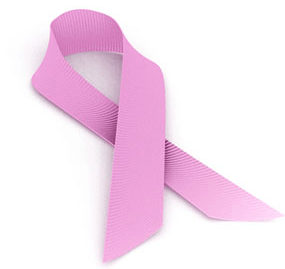Early cancer diagnosis needs strengthening – MP
 As the world marked World Cancer Day on February 4, 2018, Dr Kwabena Twum-Nuamah, a legislator, has called for the strengthening of early diagnosis at all levels of the health system to reduce the burden of all types of the disease.
As the world marked World Cancer Day on February 4, 2018, Dr Kwabena Twum-Nuamah, a legislator, has called for the strengthening of early diagnosis at all levels of the health system to reduce the burden of all types of the disease.
He identified cervical cancer as a leading cause of cancer related deaths among women in Ghana, and urged that a firm decision is taken on whether to include vaccination of young girls against Human Papilloma Virus (HPV), which causes cervical cancer, in the national immunisation programme.
“This vaccine is currently available commercially and can prevent cervical cancer, which is one of the very few cancers that can be prevented by vaccination,” Dr Twum-Nuamah, who is the Member of Parliament (MP) for Berekum East Constituency, said in a statement on the floor of Parliament, on Wednesday, to mark the day.
The theme for this year’s celebration is: “We can. I can.”
Cancer is a group of diseases involving abnormal cell growth with the potential to invade or spread to other parts of the body; and this year’s theme ‘We can. I can’ is based on the premise that collectively “we can fight cancer, as we can as individuals,”
The ‘We can focuses on issues such as making the case for investing in cancer control, building a quality workforce, shaping policy change and creating healthy workplaces, schools and cities.
The ‘I can focuses on issues such as making healthy lifestyle choices, which include exercising, vaccination and eating fruits and vegetables, and understanding that early detection saves lives.
This year marked the 12th celebration of World Cancer Day, and the global event was used to raise awareness about various aspects of cancer, including the most common types and risk factors.
Celebrated annually since 2006, the event is the brainchild of the Union for International Cancer Control and endorsed by the World Health Organization.
During the day, government bodies and NGO’s hold various activities to highlight the fight against cancer either by supporting those who are battling it or saluting those that have died because of it.
Statistics from the WHO published this month shows that around 70 per cent of deaths from cancer occur in low- and middle-income countries. Around one-third of deaths from cancer are due to the 5 leading behavioural and dietary risks: high body mass index, low fruit and vegetable intake, lack of physical activity, tobacco use, and alcohol use.
Tobacco use is the most important risk factor for cancer and is responsible for approximately 22 per cent of cancer deaths.
Dr Twum-Nuamah brought the attention of the House to the health implications of Non-Communicable Diseases (NCD) in general and cancers in particular, and told colleague legislators that NCDs have been captured in the Sustainable Development Goals of the United Nations.
In Ghana, the Ministry of Health has been playing the lead role through the Non-Communicable Diseases Control Programme and other stakeholders to improve on cancer prevention.
Ghana has also developed guidelines to guide the management of cancers in Ghana, and in recognition of Ghana’s efforts at cancer prevention, the city of Kumasi was recently selected as the first in sub-Saharan Africa and the fourth in the world after Cali in Columbia, Asuncion in Paraguay and Yangon in Myanmar to undertake the city cancer challenge project, where cities lead in the prevention and control efforts for cancers.
Dr Twum-Nuamah called for more resources and attention to be paid on cancer prevention activities, especially on treatment of early childhood cancers, noting that, childhood cancer treatment centres in Ghana are only available in Korle Bu and Komfo Anokye Teaching Hospitals.
He appealed to the Government, at the minimum, to ensure that the other two teaching hospitals in Ghana- the Cape Coast and Tamale Teaching Hospitals are all equipped to provide childhood cancer treatment care as quickly as possible.
The MP, who is also a medical doctor, called for the enforcement of the ban on smoking in public places, as smoking is a risk factor and a cause for several cancers, and also to discourage the harmful use of alcohol, and rather encourage the eating of healthy diets, rich in fruits and vegetables and exercising regularly to reduce the risk of cancer.
“I wish also to encourage the population to take up regular medical check-ups to ensure early diagnosis of any cancer and other disease conditions,” Dr Twum Nuamah said.
Source: GNA
